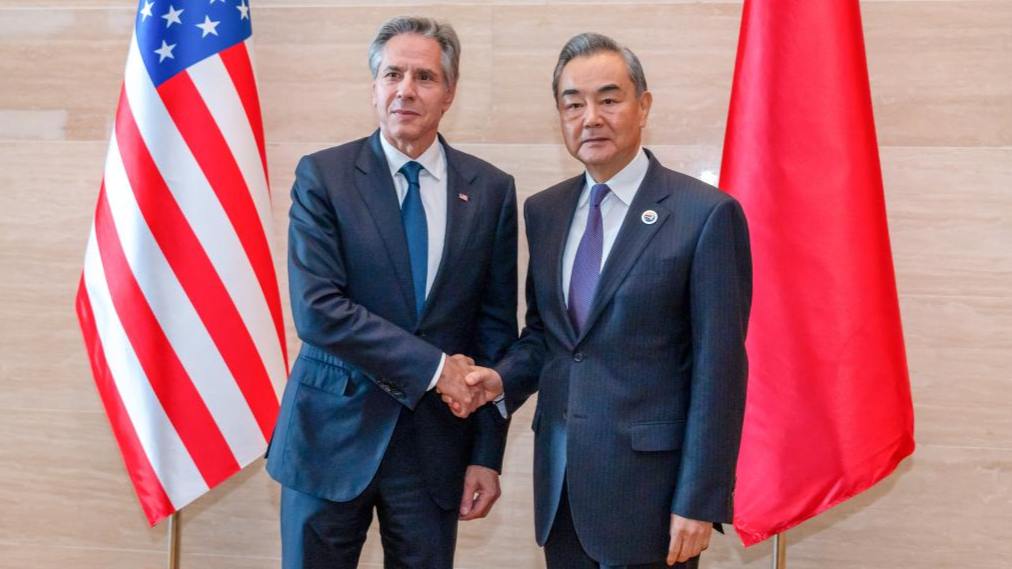
Speaking with US Secretary of State Antony Blinken in the Laotian capital of Vientiane on Saturday, Chinese Foreign Minister Wang Yi noted that although the United States and China had restored communication on many levels and people-to-people exchanges between the two countries had also increased, the US has not stopped its containment and suppression of China, and it has even intensified its efforts in that regard.
In yet another move that only serves to show the truth of Wang's words, the US announced on Sunday that it would revamp its military command in Japan to deepen coordination with its ally's forces, with US and Japanese officials falsely portraying China as the "greatest strategic challenge" facing the region.
READ MORE: US urged to return to rational China policy
US Secretary of Defense Lloyd Austin, while trying to justify the upgrade to the US command in Japan, again resorted to lies about China "engaging in coercive behavior and trying to change the status quo in the East and South China seas, across the Taiwan Strait and throughout the region", with the US statement pointing to what Washington perceived as Beijing's "provocative" maritime actions.
Yet the criticism targeting China sounds more like self-exposure of Washington's own misdeeds in the Asia-Pacific region, as it is the US that has been seeking to build up its regional allies' ability to host nuclear weapons and engaging in provocative activities posing increasing threats to peace and stability in the region.
The US military has conducted multilateral anti-submarine war games in the Western Pacific, joint operations with the Philippine navy in the South China Sea, and trilateral drills with Japan and the Republic of Korea in the East China Sea. It has also held naval exercises in waters off the Philippines with Japan's Maritime Self-Defense Force.
Such activities, in addition to the provocations on China's doorstep, which include "long-term, large-scale and frequent close-in reconnaissance" in the waters and airspace around the country, have greatly increased regional tensions.
That the defense chiefs of Japan, the US and the ROK also agreed to a landmark security cooperation framework on Sunday, with China in mind, adds to the risk of frictions in the region sparking a firestorm.
It is dissembling by the US, which has around 300 military bases dotted around China, to accuse the latter of posing the largest security threat to the region.
That China-US relations are facing accumulating risks and challenges is mainly due to Washington holding a wrong perception of the country based on its own hegemonic logic, as Foreign Minister Wang told Blinken during their meeting in Laos on Saturday.
ALSO READ: Healthy business ties platform for stability
With the risks and challenges facing China-US relations still accumulating, and the two sides still trying to stop the decline and stabilize their relationship, it is imperative that they work together to properly handle their differences, remove disturbances and manage risks, so they can advance their cooperation.
No matter how the US tries to distort reality, China does not seek hegemony or practice power politics, and as a major country, it has the best record on peace and security in the world. As such, the US should recalibrate its China strategy based on the clear position staked out in the just-concluded third plenary session of the 20th Central Committee of the Communist Party of China, which reaffirmed the country's commitment to the path of peaceful development and the building of a community with a shared future for mankind.
The US should refrain from making any further moves to contain and suppress China so as to help maintain peace and stability in the Asia-Pacific region and beyond. It should recognize that there is no place for its Cold War mentality in the world today.


